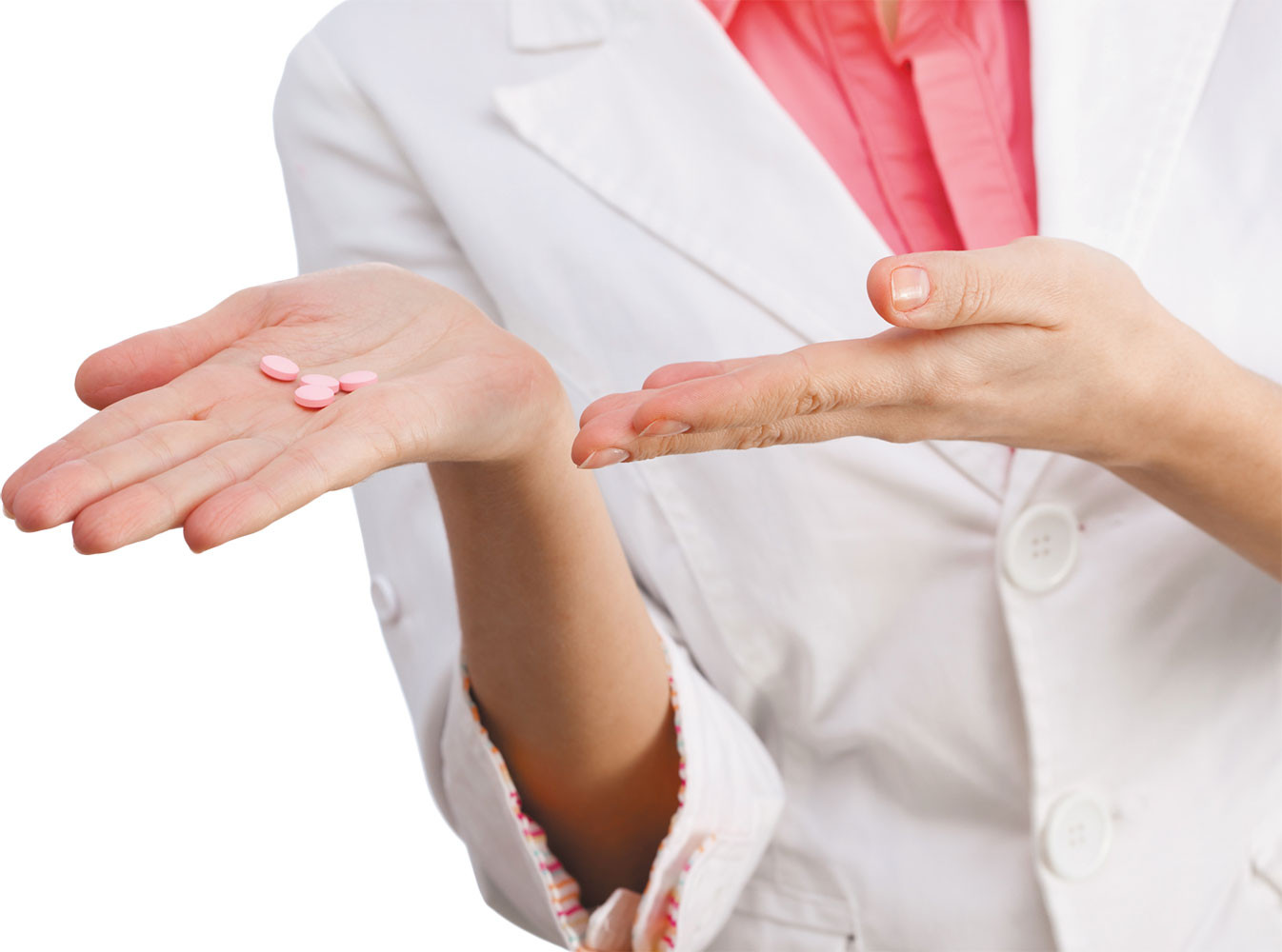Addyi is not a "female Viagra," but it can open an important discussion
Many of my patients, colleagues, friends, and even neighbors have asked me about the new drug flibanserin (Addyi), which the FDA recently approved for treatment of low sexual desire in women. Flibanserin has generated more questions, comments, and media inquiries for me than I've ever experienced in my 20-year career as an obstetrician/gynecologist. While there are several medications that improve sexual function in men (including Viagra, the most famous one), flibanserin is the first to be approved for that purpose in women. Here are what I consider the relevant facts about flibanserin, and what I say to my patients.
|
The "pink pill" works differently than the "blue pill"—Viagra. Image: Thinkstock |
It's not a "pink Viagra"
Viagra (sildenafil) treats erectile dysfunction in men by inhibiting the enzyme nitric oxide synthase to improve blood flow to the penis. In contrast, flibanserin is thought to work by increasing the release of the neuro-transmitter hormones dopamine and norepinephrine, while decreasing serotonin release in the area of the brain that regulates sexuality. Viagra is taken just before having sex, while flibanserin is taken daily. Flibanserin is approved only for premenopausal women. Its benefits are modest; it has been shown to slightly improve sexual satisfaction for some women.
Flibanserin has side effects
The approval of flibanserin took many years and followed two rejections by the FDA. This is because it was thought that the side effects—low blood pressure, nausea, and fainting—were too strong for the modest benefit in sexual function. Moreover, drinking alcohol or using birth control pills while taking it can worsen the side effects. In the most recent FDA review, the drug's sponsor presented additional safety data that showed the drug doesn't impair driving and confirmed that the side effects were more pronounced when flibanserin was taken with alcohol.
Let's consider other factors
Women's sexuality is very complex. It is affected by brain chemistry, mood, relationships, medications, and health status—of both partners. In my practice, women of all ages have questions and concerns about sex and sexuality, and these questions often come up after childbirth, during perimenopause, and even later.
When a woman comes to me with these concerns, we talk about the following:
Physical and mental health. Depression is a common cause of loss of interest in sex.
Medications. Some medications such as birth control pills, blood pressure pills, or antidepressants, can decrease desire.
Stress and schedules. Often, I find that couples have not set aside enough time and energy for their relationship. I often ask, "If you and your partner were alone on a tropical island, and you had no worries or schedules, would you be interested in sex?" If the answer is yes, we explore how to carve out time for the relationship.
The couple's relationship. Issues between a woman and her partner can affect her libido.
Hypoactive sexual desire
When a woman who is satisfied with her relationship can't think of an occasion when she'd like to have sex, I am left with the diagnosis of hypoactive sexual desire disorder (HSDD).
I often try to refer her and her partner to a sex therapist. However, these experts can be hard to find and treatment may not be covered by insurance.
Treating women with HSDD has been vexing to me because most often I have been unable to help them. They are typically in healthy relationships, and yet they have no desire, sex drive, or don't respond to sexual stimulation. When I talk to these women, I try to explore all options. However, to date, there has not been a good medical option. Flibanserin is intended for this group of women.
Is flibanserin right for you?
For a woman who might benefit from flibanserin, I would ask her whether the modest improvement in sexual function is really worth the potential side effects. Ultimately, I believe she should weigh the pros and cons and decide. A healthy physician-patient relationship should allow for this type of discussion and joint decision making.
I welcome these conversations. Female sexual dysfunction is an important and unmet medical need and de-serves appropriate research and treatment options. Hypoactive sexual desire and arousal, especially for women, is indeed real.
My advice is to explore all nondrug options that can help you create a satisfying sex life—reduce stress, take care of your health, check your medications with your physician, and prioritize time for your relationship. If you decide to try flibanserin, proceed with caution and follow the package instructions to the letter.
Disclaimer:
As a service to our readers, Harvard Health Publishing provides access to our library of archived content. Please note the date of last review or update on all articles.
No content on this site, regardless of date, should ever be used as a substitute for direct medical advice from your doctor or other qualified clinician.
















